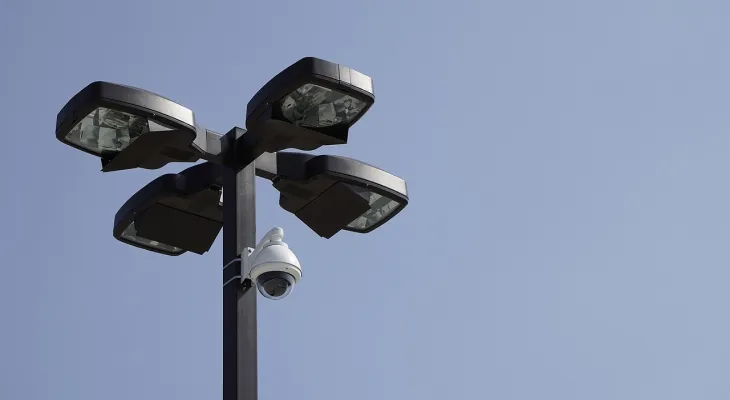Search here
Newspaper
Search here

Arab Canada News
News

Published: March 8, 2022
Montreal police plan to install nine more security cameras across the city in response to the rise in violent crimes, but community groups are divided on whether the technology works to deter crime or if it is a waste of money.
With the addition of the nine cameras - at a cost of up to $11,000 each - the police say they plan to operate a network of 42 cameras in the city by the end of the year.
The province says violent crimes, especially gun-related crimes, have increased in Montreal since 2016.
But Montreal University criminology professor Rémi Boivin says he doesn't know how the police can justify adding more surveillance cameras across the city.
Boivin said in an interview on Monday, "If the goal is to prevent crime, I would say, first and foremost, this will do nothing, and secondly, the police already know that."
He said in an interview on Monday, "Crimes committed against a person." "If they do not occur in a park with a camera, will they occur in the next park where there is no surveillance?"
The cameras will be installed in four parks across the city and at other locations, including Cabot Square downtown, a common gathering place for Indigenous people experiencing homelessness.
The police say on their website they have informed "certain partner organizations" about the camera installation plan. But Ousseynou Ndiaye, executive director of a community group in the Montreal area, says he was never consulted.
Ndiaye said with the group Un itinéraire pour tous in an interview on Monday, "We do not want to highlight the violent crime issue simply by installing more security cameras everywhere."
"The problem is much deeper than that. Thinking that you can solve it using cameras completely misses the point."
However, he does not completely oppose surveillance cameras.
Last fall, his group worked with the police to install cameras in the town. He said, "Everyone supported it."
But this time, Ndiaye said the police did not consult him, adding that he fears the surveillance network will become bad.
Ndiaye said, "I wanted to analyze the work of the existing cameras." "Did they work in preventing crimes... How much have we invested in the community to support the vulnerable? How much did we pay for those cameras?"
The police have also added surveillance cameras in other Canadian cities, including Toronto. Last summer, Ontario announced a total of $6 million over three years for police forces to purchase more security cameras. A police spokesperson said on Monday that Toronto police already have more than 30 cameras and plan to expand the network to 74 by 2028.
The Quebec government has invested tens of millions of dollars in recent months to combat violent crimes, especially in the Montreal area. Minister of Public Security Geneviève Guilbault said the number of firearm-related attempted murders in the Montreal area quadrupled between 2016 and 2020. There were 25 homicides in Montreal in 2020 and 37 in 2021.
The killings of young teenagers in the Montreal area are what prompted authorities to take action.
In February, Lucas Goudet, a 16-year-old high school student, was killed after a fight outside a high school in Montreal's West Island. In January, Amir Banayad, 17, was shot in the Plateau Mont-Royal area in the first homicide in Montreal in 2022.
In 2021, 20-year-old Hani Ouahdi was shot in a car in the Anjou neighborhood east of the city in December. In mid-November, 16-year-old Thomas Trudel was shot in the St-Michel neighborhood while returning home from a park.
Janai Dubois-Pelley, 16, died after being stabbed outside his school last October. In February of that year, Mariam Bondaoui, 15, was killed in a drive-by shooting in the Saint-Leonard neighborhood.
Fo Niemi, executive director of the Montreal-based Civil Rights Research Center on Race Relations, says he is concerned that police are investing money in surveillance technology instead of supporting community programs to prevent crime.
Niemi said in an interview on Monday, "There is a need for a public discussion, whether this plan will be going in an increasing direction."
"There is little communication regarding information available to the public. This is something the city and police should consider, because transparency is essential to gaining and maintaining the trust and cooperation of communities."
Edited by: Dima Abu Khair
Comments